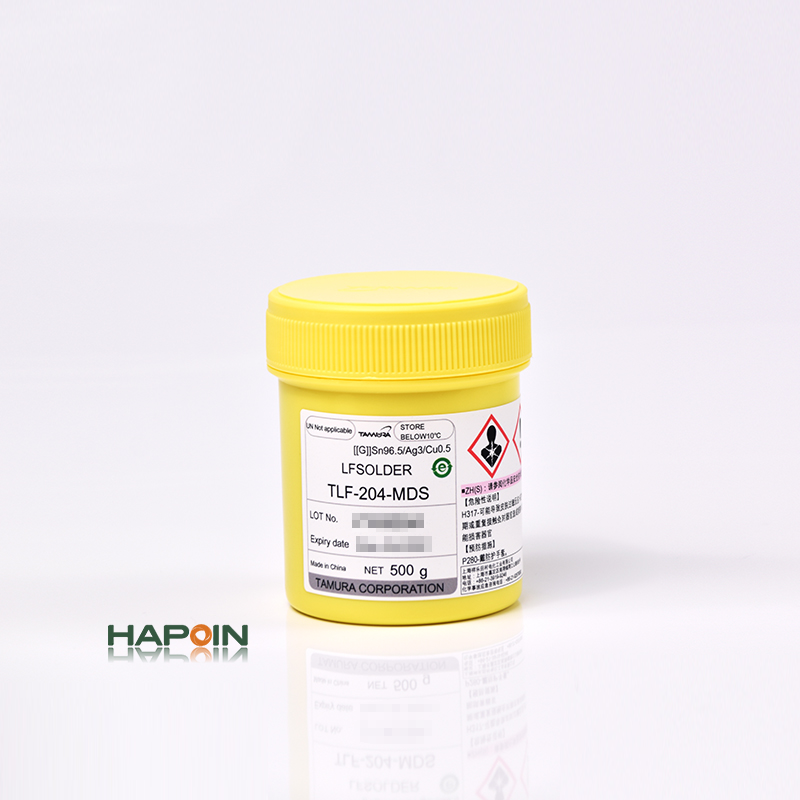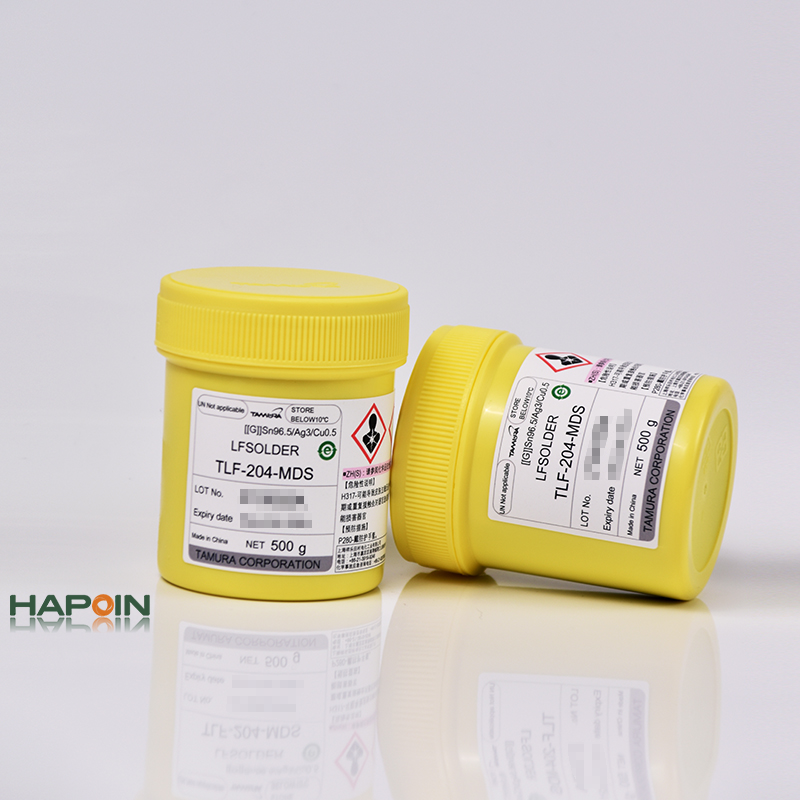TAMURA TLF-204-MDS Lead-free solder paste
Brief introduction of Tamura Tamura TLF-204-MDS lead-free solder paste;
- Lead-free (tin/silver/copper series) solder alloy
- The viscosity changes little with time during continuous printing, and stable printing effect can be obtained.
- Can effectively reduce cavities.
- Can effectively reduce the generation of solder balls between components.
- Can effectively improve the preheating fluidity.
- It belongs to lead-free solder paste and can show good reflow effect under the condition of high temperature reflow curve.
- It also has good tin-plating performance for pads with a spacing of 0.4mm such as BGA.
Tamura Tamura TLF-204-MDS Lead-free Solder Paste Specifications:
| project |
trait(TLF-204-MDS) |
Experimental method |
| alloying component |
Sn96.5/Ag3.0/Cu0.5 |
JIS Z 3282(1999) |
| Melting point (℃) |
216~220℃ |
Using DSC detection |
|
Solder particle size (μm) |
25~38 μm |
Using laser light reflection method |
| Tin powder shape | sphericity |
JIS Z 3284(1994) |
| Flux content |
10.9% |
JIS Z 3284(1994) |
| chlorinity |
0.0% |
JIS Z 3197(1999) |
| viscosity |
195Pa.s |
JIS Z 3284(1994) Malcom PCU viscometer 25℃ |
| Aqueous solution resistance test |
More than 5×104Ω.cm |
JIS Z 3197(1999) |
| Insulation resistance test |
More than 1×109Ω |
JIS Z 3284(1994) |
| Fluidity test | Below 0.20mm |
Solder paste was printed on a porcelain substrate with a thickness of 15. 0℃ for 60 seconds, from before and after solder heating. The width of the measured flow amplitude. STD-092b Note |
| Tin ball test | Almost Wuxi ball occurs. |
Printing the solder paste on the porcelain substrate, melting and adding. After heating, observe it with a 50 times microscope. STD-009e Note |
| Solder diffusion test | More than 76% |
JIS Z 3197(1986) |
| Copper corrosion test | Non-corrosive situation |
JIS Z 3197(1986) |
| Viscosity test of solder paste residue after reflow | qualified |
JIS Z 3284(1994) |
Note Tamura test method (numerical value is not guaranteed value)



